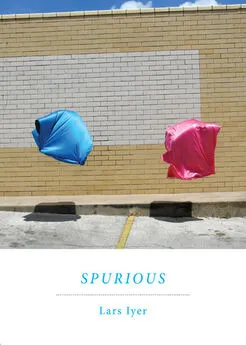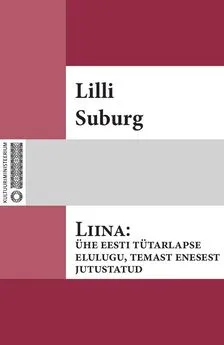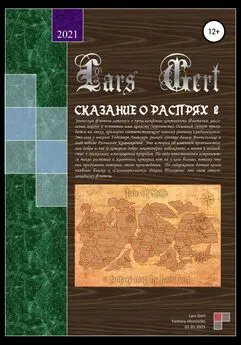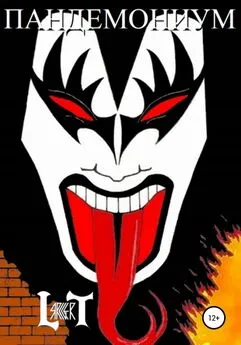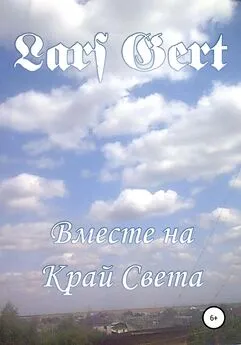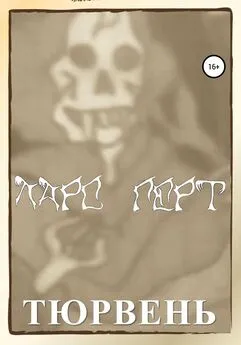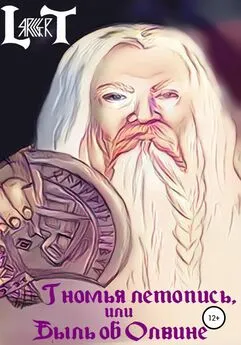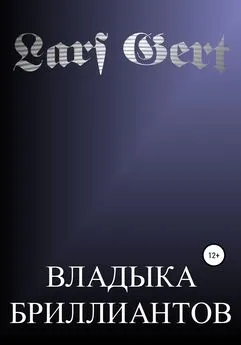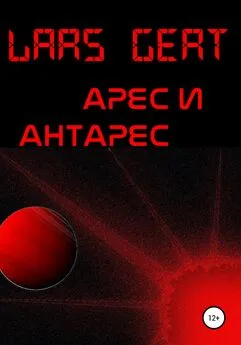Lars Iyer - Spurious
- Название:Spurious
- Автор:
- Жанр:
- Издательство:Melville House
- Год:2011
- ISBN:нет данных
- Рейтинг:
- Избранное:Добавить в избранное
-
Отзывы:
-
Ваша оценка:
Lars Iyer - Spurious краткое содержание
In a raucous debut that summons up Britain's fabled Goon Squad comedies, writer and philosopher Lars Iyer tells the story of someone very like himself with a "slightly more successful" friend and their journeys in search of more palatable literary conferences and better gin. One reason for their journeys: the narrator's home is slowly being taken over by a fungus that no one seems to know what to do about.
Before it completely swallows his house, the narrator feels compelled to solve some major philosophical questions (such as "Why?") and the meaning of his urge to write, as well as the source of the fungus… before it is too late. Or, he has to move.
Spurious - читать онлайн бесплатно полную версию (весь текст целиком)
Интервал:
Закладка:
Didn’t the same thing happen with our second leader? Ah, our second leader! He had an absolute lucidity when he spoke of the interlacing of his life and thought, we agree. It was like looking into the clearest of rivers, W. says. How frankly and absolutely he spoke of his thoughts, and to anyone who asked! Frankly and absolutely, as though life were a glass to look through and not to live! Or that life was lived at another level, where thinking, real thought, was possible! — ‘A level of which we have no conception’, says W.
But it happened again. ‘Which one of us blurted it out’, W. asks, ‘you or me?’ Regardless, the spell was broken. We had spoken to him of what we lacked and what he had. We spoke of cosmogony and the opposite of cosmogony, of the beginning of times and of their coming end …
Then there was the third leader. — ‘Ah, our third leader’, W. exclaims, ‘the greatest one of all’.
Everyone knows to keep quiet when he speaks, W. says. He speaks very quietly himself, and is immensely modest, but everyone knows it: here is a thinker, here is thought in person. He lives in a different way from everyone else, that much is clear. He lives another kind of life, and his quietness is a sign of his elevation.
It’s what everyone in the room knows when he speaks: he’s better than the rest of us, cleverer; he occupies the stratosphere of pure thought. Thought is here, and we are touched by a cold and fiery hand, by what it would be impossible for us to think by ourselves. To have a thought that would burn our lives away like dross! To have the whole of our lives become clear and still like pools of water in northern forests!
We lean in, listening. He speaks so quietly, and we must be more quiet than we can be to hear. And for a moment, we forget we are apes, and listen with the whole of our being.
And then it happened again. We told him all we wanted was a leader and to be led by a leader. We told him about our first leader and our second leader, and our desertion by our first leader and our second leader. We told him of the tohu vavohu that comes at the beginning and will return at the end. We told him of the apocalypse and of waiting for the Messiah …
Will we find our new leader in Freiburg? It’s unlikely, we agree as we sip our piña coladas.
Wandering back to the hotel, we lose ourselves in the streets, chancing upon the same section of waterway again and again, the same weir. The city’s closing itself against us, we decide. Against the likes of us. It doesn’t want us here. Should we throw ourselves in the river? Is that what it’s telling us?
Kafka was always our model, we agree. How is it possible that a human being could write like that? W. says, again and again. It’s always at the end of the night when he says this, after we’ve drunk a great deal and the sky opens above us, and it is possible to speak of what is most important.
At the same time, we have Kafka to blame for everything. Our lives each took a wrong turn when we opened The Castle . It was quite fatal: there was literature itself! We were finished. What could we do, simple apes, but exhaust ourselves in imitation? We had been struck by something we could not understand. It was above us, beyond us, and we were not of its order.
Literature softened our brains, says W. — ‘We should have been doing maths. If we knew maths, we might amount to something. As it is, we’ll amount to nothing’.
There’s nothing wrong with literature per se, says W., who cannot go a day without speaking of Kafka, but it’s had a bad effect on us. Besides, he says, he bets Kafka was good at maths. He was good at law, after all, which is probably a bit like maths. Perhaps we should drop out and become lawyers. Perhaps that would be the making of us.
Literature destroyed us: we’ve always been agreed on that. The literary temptation was fatal. Of course, it would be different if we read literature alongside philosophy, W. says, but literature, for us, could not help infecting our philosophy.
But doesn’t W. admire the fact that we feel something about literature? Doesn’t he think it’s what saves us? W. is not persuaded. — ‘It makes us vague and full of pathos. That’s all we have — pathos’.
Once, W. thought of himself as a writer, a literary writer. He filled notebook after notebook. It was in his early twenties. Everyone wants to be a literary writer in their early twenties, W. says. Of course no one ever is. W. realised it pretty quickly. He knew he was no Kafka, he says. That’s what I don’t know yet — I don’t know I’m not Kafka. I don’t have a sense of myself as a failure, which is ironic because I am a failure.
It would be different if either of us had literary talent, W. says. Do I think I have literary talent? he asks me. W. knows he doesn’t have literary talent, he says. But he doesn’t think I know. Admittedly, I never said I had literary talent. But I don’t deny it enough. Anyway, it’s very clear: I don’t have literary talent, W. says. And just so I know, I haven’t got any philosophical talent either, he says. Does he have any philosophical talent? He has more than I do, he says. Just a little bit more, but that’s already something.
His IQ’s higher than mine, W. says. Just a little bit, but that’s what separates us, man from ape. And he’s from a higher class than me, W. says. — ‘I have manners. You have no manners. And you’re continually touching yourself. Look at you: you’re doing it now!’ I take my hand out of my shirt. — ‘Why do you like touching your chest so much? Does it arouse you? Keep your hands on the table where I can see them. Read your book’.
For a long time, W. thought he might become Kafka. He was all W. read. Constantly, again and again, everything by him and everything about him, and he speaks lovingly of discovering the brightly coloured Schocken editions of Kafka.
It was one of those old Victorian libraries, he says, such as could be found in the towns and cities of the West Midlands. He probably hadn’t read all the books in the children’s section, he says, but there was nothing left that seemed worth reading. He asked a librarian for a ticket for the adult section of the library and, even though he was relatively young (he imagines himself being twelve or thirteen, but he was probably older), they allowed him one.
It was the brightness of the dust jackets that drew him in, W. says. They were fluorescent orange, he said, a bright and baffling colour. And when he opened the book, it was as if he had crossed over a threshold, as though there were another light streaming from its pages, a splendour that has fascinated him ever since.
For a long time, W. says, he saw little difference between Kafka and himself. Imagine it — a boy from Wolverhampton who thought he was a Jew from Prague! How is it possible for a human being to write like that?: yes, that was always W.’s question before Kafka.
How was it possible? W. stopped writing after his undergraduate years. He’d write all the time, but he realised he would never be Kafka. W. gave his notebooks and writings to a girlfriend. — ‘I didn’t keep a scrap’, he says, as German teenagers gather round us in the Augustinerplatz, playing early Depeche Mode on a ghetto blaster.
In the shops in Freiburg, they wipe the door handles after we leave and rearrange the books we looked at. What is it about us? Are we that disgusting?
We wanted to gaze at the great editions. At the collected works of Schelling, published by Vorlesung. At those of Nietzsche, edited by Colli and Montinari. W. wanted to look for Cohen’s books, which are out of print in several languages. But the shop assistants were suspicious. Our German was deficient. Our questions went awry.
Tired of the city, we catch the train to Titisee and hire a pedallo to paddle out onto the lake. Feet on the dashboard, the blue bowl of the sky above us, we discuss the fate of Max Brod, who spent all his life writing commentaries and exegeses of Kafka’s work, and the fate of Kafka, which seems altogether more dark and mysterious precisely because of Brod’s commentaries and exegeses.
We discuss the inadequacy of political thought in tackling the question of political economy, and the failure of philosophical thought to pose, really pose, the question of what matters most …
Above all, we bewail the fact that the great disasters about to befall us barely leave a trace on the intellectual reflection of our time. It’s as if we were going to live forever, but the real thinker, we agree, knows, without melodrama, that thought is fragile and already touched by death.
Isn’t that what the convalescing Rosenzweig knew as he assembled The Star of Redemption in his barracks in Freiburg? It took him seven months, that’s all. Seven months, and he was also writing a letter a day to his beloved …
Freiburg’s a terrible place, we agree at the top of the observation tower on the Schlossberg. It was rebuilt to look exactly like it was before the bombing, that’s the problem, W. decides, and compares it unfavourably to Plymouth, which was rebuilt in an entirely different style.
W. reminds me of Abercrombie’s Plan for Plymouth, published during the war, which saw the city organised in long boulevards, transected by the avenue that runs from the train station to the Hoe. Modernism at its finest, we agree.
But Freiburg’s fake. I remind W. of Warsaw, the central part of which was built in an exact replica of what was there before the bombing — weren’t we at our happiest eating out with our guide in the old square? — ‘That’s because it was obviously fake’, W. says. And then there was the warmth and conviviality of the Poles. — ‘The Freiburgers are cold, cold!’
Last night, we worked our way through all the wines on the menu, glass by glass. In the end, the Polish waiter sat down with us and told us the bar was terrible. He was keen to try his English: ‘My heart, how do you say it? (he makes the gesture, and we say “aches”) aches for you. Go somewhere else’.
Where should we go? In moments of crisis, W. always asks himself what Kafka would do. What would Kafka do in our place? What would he make of it all? But that’s the point: Kafka would never find himself in our place; he would never have made the mistakes we’ve made.
Kafka was at least a man of Europe, of old Europe. A Europe in crisis, but Europe nonetheless. And us? What does Europe mean to us? What could it ever mean? We’re lost in Europe, two apes, two fools, though one is infinitely more foolish than the other.
We have to get away. But where to? W. takes the situation in hand.
Strasbourg soothes us. Strolling through the wide boulevards, we grow calm and quiet. So many beautiful buildings, one after another! It’s too much, we’re dwarfed, humbled … and for a time, we’re quiet, really quiet, lost in wonder at old Europe.
The phrase, old Europe , is an oxymoron, W. and I decide. The Europeans live in history, as we do not. What can we do but pass across its surface like skaters? Its historical depth is something of which we are only half-aware, we decide. It troubles us, it makes us feel uneasy, but in the end we can have no relationship to it.
What did we say to the European professor who asked a whole circle of us how many languages we spoke, rather than read? We can read a whole bunch of languages …, that’s what we said. That’s not what he asked, he said. Not one of us spoke a single language. Most of us hadn’t really been to Europe. None of us thought of ourselves as Europeans …
Читать дальшеИнтервал:
Закладка:
